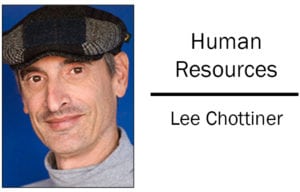The righteous shall flourish like a palm tree and grow mighty like a cedar in Lebanon.
— Psalm 92
 The cedars of Lebanon are dying, and climate change is to blame.
The cedars of Lebanon are dying, and climate change is to blame.
Psalm 92, which appears in most Shabbat siddurim, contains this line, which casts the cedars of Lebanon as the epitome of strength and vigor among righteous humans. It’s an iconic statement, one that transcends modern day politics. (The symbol of an Arab country is aggrandized by Jewish liturgy.)
And yet, the cedars of Lebanon are vanishing from the earth.
And climate change is to blame.
The news probably won’t change the way you live. You’ll still play golf on weekends, go to dinner with your friends, take your kids to college.
But as you do all that, keep the line in the back of your mind: The cedars of Lebanon are dying, and climate change is to blame.
Thanks to The New York Times, and an exceptional piece of all-media journalism (text, video, photos, graphics), we know the cedars of Lebanon are dying, and climate change is to blame.
According to the Times, as temperatures rise in Lebanon, the eco-zones where the cedars live are shrinking, retreating to the highest elevations until at last there will be nowhere left for them to thrive.
If nothing changes, by 2100, experts say, the cedars will survive only at the “northern tip of the country.”
Even there, the trees will be vulnerable to insect infestation, which have already claimed 7 percent of the dear forest in the Tannourine Cedars Forest Nature Reserve. The infestations, which were unknown there prior to 1997, are directly tied to the changing climate.
Men have been chopping down the cedars since ancient times, using their prized wood for palaces and temples. King Solomon procured cedar for the First Temple of Jerusalem.
So, yes, the cedars of Lebanon have been disappearing for a long time. However, climate change could finish them off.
What does this mean?
On September 9, we will observe Rosh Hashanah, what we call the birthday of the world. Those dying cedars will be one more chilling reminder (as if we needed one) that the world is on its sickbed.
Add that to so many other disheartening developments on the climate front:
• The United States has become the only nation on earth to pull out of the Paris Climate Accords.
• The polar ice caps are melting at rate faster than even climate scientists were expecting.
• Extreme weather events – wildfires, hurricanes, flooding, the spread of arid land — are on the rise.
• And, as you have surely noticed, it’s hot out there and getting hotter, with lasting health and economic consequences.
While all this is happening, our national leaders, from both parties, have gone silent on the subject. Many of my colleagues having reported extensively on the Paris accord have now moved on to newer, shinier issues.
The health of the world, with some exceptions (like The Times’ cedars story), get short shrift.
We ignore this issue at our own risk, and our children’s risk.
It may seem like an impossible issue. How do we wrap our arms around so titanic a problem? What do we do? What can we do?
Let’s start with what we mustn’t do – nothing.
The People’s Climate Movement, a grassroots effort to keep the health of the planet on the front burner, is planning a climate march for Saturday, September 8, called Rise for Climate, Jobs and Justice. It won’t be the first time; the inaugural climate march was held in 2014; they have continued every year since as the crisis has worsened. Last year, demonstrators marched in 370 cities; 200,000 people in Washington alone hit the streets.
This year, a Louisville rally is slated for 10 a.m. at Metro Hall, 527 West Jefferson St.
To rally on Shabbat is understandably unthinkable for some. Others might interpret it as an act of pikuach nefesh (saving a life). In any event, it’s a chance to do something.
If you cannot be at this rally, there are still 365 days in a year to speak out. Use them.
Someday in the future, a worshiper in a synagogue will open her siddur. She will come to Psalm 92, as he always does. Her eyes will read down to the line about the mighty cedars. As Jews, it is our task to make sure that worshipper will not be not reading about an extinct tree.
(Lee Chottiner is editor of the Jewish Louisville Community.)


